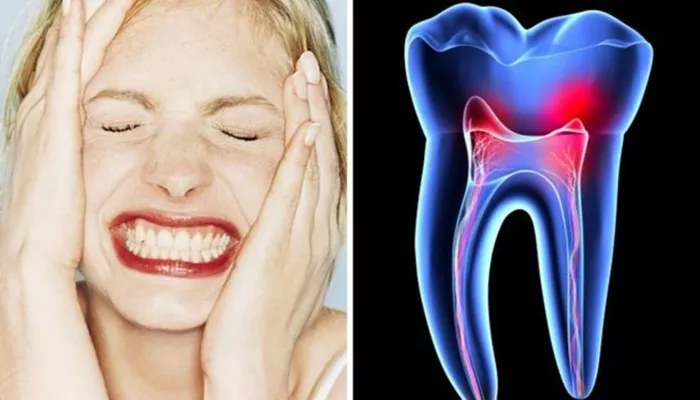Getting braces removed is a significant milestone in the journey to a perfect smile. However, many people experience an unexpected side effect: teeth sensitivity. This sensitivity can range from mild discomfort to sharp pain, affecting daily activities like eating and drinking. Understanding why this happens and how to manage it can help ease the transition from braces to a retainer or just enjoying your new smile.
Why Do Teeth Become Sensitive After Braces Removal?
1. Changes in Tooth Position and Alignment
When braces are removed, your teeth have undergone significant movement. The ligaments and bone that hold your teeth in place need time to adjust to their new positions. This adjustment period can cause sensitivity as your teeth settle into their new alignment.
2. Enamel Wear and Tear
Braces can sometimes cause wear and tear on the enamel, the hard outer layer of your teeth. The brackets and wires can create friction against the enamel, making it thinner in some areas. Thinner enamel can lead to increased sensitivity as the underlying dentin layer, which contains nerve endings, becomes more exposed.
3. Exposure to Temperature Changes
With braces, your teeth were somewhat insulated by the brackets and wires. Once they are removed, your teeth are suddenly exposed to temperature changes from hot and cold foods and beverages. This can cause sensitivity as your teeth acclimate to these changes.
SEE ALSO: What Is Orthodontic Treatment Used for?
4. Gum Recession
In some cases, braces can contribute to gum recession, where the gum tissue pulls away from the teeth. This recession exposes the roots of the teeth, which are more sensitive than the crowns. Gum recession can lead to heightened sensitivity, particularly to temperature and touch.
Managing Teeth Sensitivity After Braces Removal
1. Use Desensitizing Toothpaste
Desensitizing toothpaste can help reduce sensitivity by blocking the pathways that lead to the nerves in your teeth. Look for toothpaste containing ingredients like potassium nitrate or stannous fluoride, which are specifically formulated to alleviate sensitivity.
2. Maintain Good Oral Hygiene
Continue to practice good oral hygiene by brushing twice a day and flossing daily. Use a soft-bristled toothbrush to avoid further irritation to sensitive areas. Consider using an alcohol-free mouthwash designed for sensitive teeth.
3. Avoid Trigger Foods and Drinks
Limit your intake of foods and drinks that can trigger sensitivity, such as hot and cold beverages, acidic foods (like citrus fruits), and sugary snacks. Opt for lukewarm or room temperature foods and drinks to minimize discomfort.
4. Wear a Retainer as Prescribed
Wearing a retainer as prescribed by your orthodontist is crucial in maintaining your new tooth alignment and allowing your teeth to settle properly. The retainer can also help protect your teeth from sensitivity caused by minor shifts in alignment.
5. Schedule Regular Dental Check-Ups
Regular dental check-ups are essential to monitor your oral health and address any issues that may arise after braces removal. Your dentist can provide professional treatments, such as fluoride applications, to help strengthen your enamel and reduce sensitivity.
Long-Term Effects And What to Expect
1. Gradual Reduction in Sensitivity
In most cases, teeth sensitivity after braces removal is temporary. As your teeth and gums adjust to the new alignment and the enamel strengthens, sensitivity should gradually decrease. This process can take a few weeks to a few months, depending on individual factors.
2. Potential for Permanent Sensitivity
For some individuals, sensitivity may persist for a longer period or even become a long-term issue. Factors such as significant enamel wear, severe gum recession, or pre-existing sensitivity issues can contribute to prolonged discomfort. If sensitivity persists, it’s important to consult with your dentist for further evaluation and treatment options.
Preventing Sensitivity Before And After Braces
1. Proactive Measures During Braces Treatment
Taking proactive measures during your braces treatment can help minimize sensitivity after removal. Follow your orthodontist’s instructions for proper oral hygiene and avoid habits that can damage your braces or teeth, such as chewing on hard objects or consuming sticky foods.
2. Post-Braces Care Routine
Developing a post-braces care routine is essential for maintaining your oral health and reducing sensitivity. This routine should include:
Consistent Oral Hygiene: Brush and floss regularly, and use products designed for sensitive teeth.
Regular Dental Visits: Schedule regular dental check-ups to monitor your oral health and address any emerging issues.
Healthy Diet Choices: Avoid foods and drinks that can trigger sensitivity and opt for a balanced diet that supports overall oral health.
When to Seek Professional Help
1. Persistent or Severe Sensitivity
If you experience persistent or severe sensitivity after braces removal, it’s important to seek professional help. Your dentist can assess your condition and recommend appropriate treatments, such as fluoride applications, bonding agents, or desensitizing varnishes, to alleviate discomfort.
2. Signs of Dental Issues
Be vigilant for signs of dental issues that may require attention, such as tooth decay, gum disease, or enamel erosion. Early detection and treatment of these issues can prevent further sensitivity and maintain your oral health.
Conclusion
Teeth sensitivity after getting braces off is a common experience, but it doesn’t have to be a long-term problem.
Understanding the causes of sensitivity, taking proactive measures to manage it, and seeking professional help when necessary can help ensure a smooth transition to life without braces. By maintaining good oral hygiene, using desensitizing products, and following your orthodontist’s recommendations, you can enjoy your new smile with minimal discomfort.

